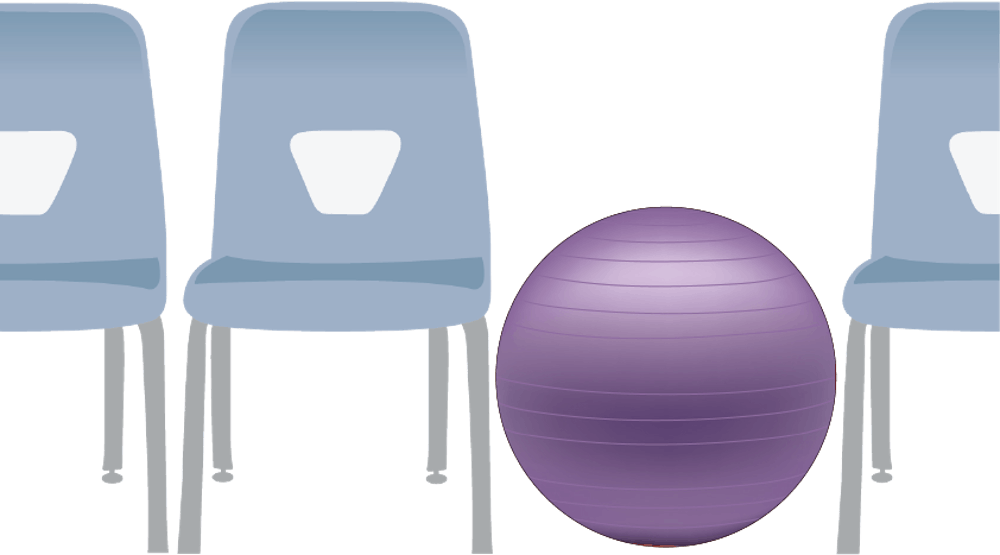Scarlet Gallagher is a first-year international business major and writes “Sprouting Thoughts” for the Daily News. Her views do not necessarily reflect those of the newspaper.
My eyes darted from face to face as I fidgeted in my seat, waiting for the time when I would get to share my thoughts.
It never came.
I went into a meeting with administrators and my parents about my 504 plan — a plan that gives assistance and accommodations to students with disabilities — and spent the entire time sitting there silently while adults talked over my head. My input was not taken into account in the decisions made.
Before I reached high school, I always had accommodations decided for me instead of by me. I don’t believe they were very helpful. It was only when I reached high school and was allowed to take control of my plan that they benefited me the most.
I was diagnosed with Attention-Deficit Hyperactivity Disorder (ADHD) at a young age, which is highly uncommon since ADHD is underdiagnosed in girls. This is due to women having a less established symptom history in the medical field, as well as a higher rate of misdiagnosis.
Accommodations first got their start in the United States following the implementation of the Individuals with Disabilities Education Act (IDEA). According to the U.S. Department of Education, it was enacted in 1975 with the intention of protecting the rights of those with disabilities and increasing their access to education.
Prior to the IDEA, only one in five children with disabilities was receiving an education in public schools. Many states even had laws preventing them from attending public schools. There have been many improvements since then, but issues still exist.
Based on my own experiences, the accommodation system in place for students with learning disabilities in elementary and middle school in the U.S. operates under the assumption that adults understand the experiences of the students better than those needing accommodation.
Discussing my experiences with classmates and friends, I learned I wasn’t alone in feeling unheard.
There is a lot to be improved upon with the current system. At its core, it excludes the ones who need accommodations.
In elementary school, it was decided by my counselor and school administrators that I should use a balance ball chair in class with the intent of helping me focus.
It really didn’t play out the way it was supposed to. It not only set me apart from my classmates visually — a difference they were quick to pick up on — but it fostered jealousy towards me.
My peers either viewed it as favoritism or saw it as a sign that I was weird and unlike them. Classmates would frequently take my ball without asking because they wanted to use it, leaving me without a seat and causing conflict.
Even though I expressed my dislike for the ball, my teachers ignored me. This caused me to develop a deep hatred for it.
I dreaded class. I dreaded school.
Having to try and balance every time I was sitting down ended up throwing off my focus. It was both irritating and distracting. But I still ended up being required to use this chair for years.
Everyone involved thought it would be beneficial to me, but it wasn’t, and I found myself frustrated. I felt like my thoughts and opinions were spoken over and brushed aside in favor of someone else’s decision.
A student's ability for self-advocacy when it comes to voicing their needs is extremely important.
When I got to high school, I was fortunate enough to find the support I needed to achieve self-advocacy. The support from my counselors and teachers helped me express what accommodations would truly help me.
However, I find myself wondering how many others like me didn’t have support systems to guide them in this crucial, transitional point of the accommodation system.
Unfortunately, it can be hard for many students to get accommodations of any kind, let alone the ones they need. Less wealthy families often cannot afford the testing required to get a disability diagnosis due to their insurance not covering them, with others having no insurance at all. According to KFF, formerly known as the Kaiser Family Foundation, at least three percent of children in the U.S. with special needs were completely uninsured as of 2019.
Even in college, there are students who are unable to get the accommodations they need due to not having proper documentation. At Ball State University, a student’s healthcare professional must fill out paperwork before the student can get accommodations, meaning past diagnoses can’t be submitted if the student can no longer afford to see a doctor.
On top of that, there are still individuals who view accommodations, such as extended deadlines or extra time on exams, as giving an unfair advantage to students. I’ve heard people imply that those who use accommodations don’t actually need them and are being given an unfair advantage over other students.
This mindset can discourage students who are seeking accommodations or those already with accommodations from utilizing them. Those with disabilities don’t want to be viewed negatively by their classmates and others for using their accommodations.
This disapproval can be harsh, and I’ve witnessed it firsthand. Because of this, I’ve hesitated in requesting extra time on assignments I know I will struggle with because I feel I will somehow be cheating or giving my peers an unfair disadvantage.
The whole point of granting accommodations is to allow myself and others like me an equal opportunity to do well, regardless of disability.
According to an article published in the Journal of Psychoeducational Assessment, giving students with learning disabilities more time on exams allowed them to attempt the same amount of questions as students without learning disabilities would have been able to under standard time conditions.
In order to destigmatize the topic, people need to learn more about accommodations and those who use them.
Our current education system needs to be reframed to make sure those who need these services not only receive them but receive the ones truly useful to them.
I hope talking about it is a step in the right direction because change will only happen when more people understand the issue at hand.
Contact Scarlet Gallagher with comments at samantha.gallagher@bsu.edu.





The Daily News welcomes thoughtful discussion on all of our stories, but please keep comments civil and on-topic. Read our full guidelines here.